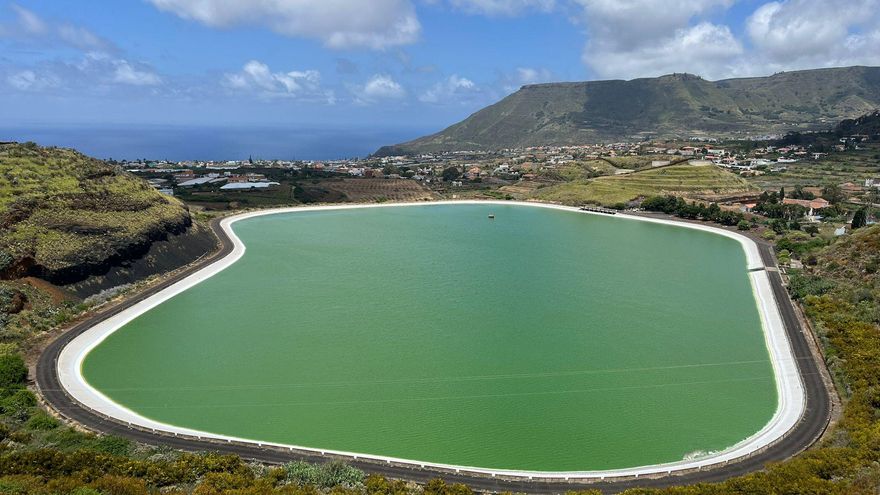Tenerife’s water reserves decline in summer heat
Tenerife’s irrigation reservoirs have seen a 12.5% drop in capacity over the past month, falling from 3,023,282 cubic meters (59.9% capacity) to 2,392,136 cubic meters (47.4%). Despite this seasonal decrease, the current levels show a 25% improvement compared to August 2024’s critically low reserves of just 1,102,530 cubic meters (22.8%). Between July 1 and August 1, the island lost 631,146 cubic meters of stored water.
Cautious optimism for agricultural water supply
Valentín González, Tenerife’s Minister of Primary Sector, urges prudence in water use for irrigation despite the relatively stable reserves. The island’s network of 21 reservoirs currently stands at 47.7% capacity. “These figures allow moderate optimism, but we must maintain responsible water management, especially during August,” González stated. While the sub-50% reserve level ensures summer supply, he emphasizes continued caution for the agricultural sector during peak demand months.
Historic comparison shows improvement
The current storage level of 2,392,136 cubic meters (47.4%) marks Tenerife’s best August performance in six years, nearly matching 2021’s reserves. González confirms no irrigation restrictions will be implemented this month across networks managed by Balten. “This provides relief for agriculture during summer’s peak water consumption period,” he notes, while acknowledging climate conditions will ultimately determine usage patterns.
Regional variations in water reserves
All regions show monthly declines: North (61.1% to 47.6%), regenerated South water (65.4% to 48.8%), and well/gallery-fed South (65.3% to 45.4%). Year-over-year comparisons remain positive except for Montaña de Taco reservoir in Buenavista del Norte – the island’s largest – which holds 289,047 cubic meters (35.2%) versus last year’s 397,635. Valle Molina reservoir, critical for the dry Northeast, maintains 81.6% capacity (501,584 cubic meters).
Farmers voice quality and infrastructure concerns
Local viticulturist Romeo Rodríguez criticizes water quality issues: “Valle Molina’s reservoir may be full, but the water contains excessive dissolved salts that hinder root development and degrade soils.” He highlights persistent municipal pipeline losses and delays in key projects like the El Chorrillo desalination plant and Santa Cruz treatment facility upgrades. Rodríguez particularly notes stagnation in the Valle Molina-to-Mesa Mota pipeline project for Tegueste’s irrigation network, and uncompleted testing of Los Laureles well despite €70,000 funding.
The agricultural climate and water emergency declared May 29, 2024 – addressing seven consecutive drought years – remains in effect until October. Rodríguez concludes with a local saying: “As my grandmother Beneda used to tell me when I was young – the baby who doesn’t cry doesn’t get fed,” emphasizing the agricultural sector must advocate for its water needs.

